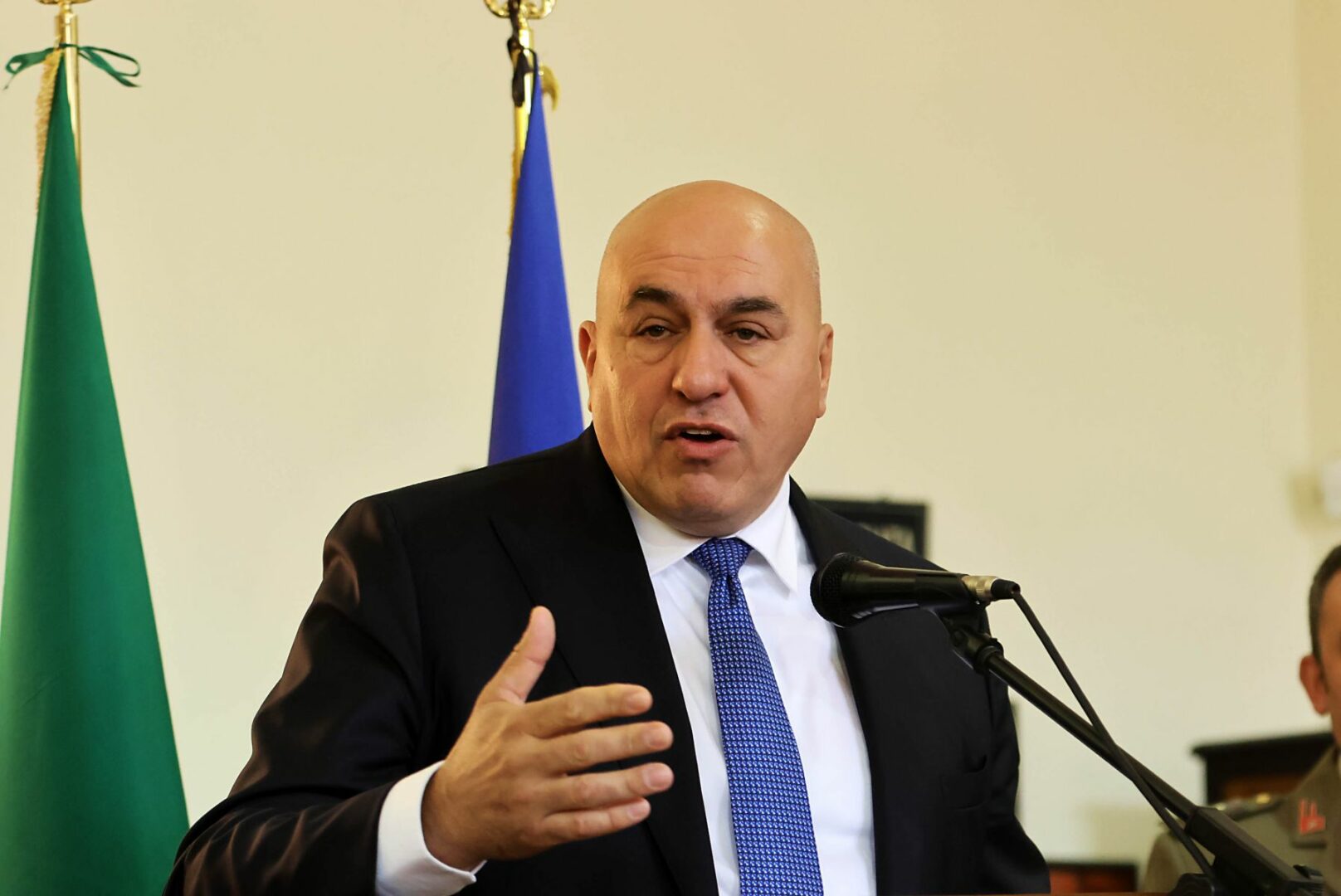ROME (ITALPRESS) – A “grand institutional pact” between powers (executive, legislative and judicial) to end “the Thirty Years’ War,” modernize state structures and make government action “faster, more efficient.” Thus, in an interview with Corriere della Sera, Defense Minister Guido Crosetto said that the relationship with the judiciary should change radically. Even by re-establishing safeguards such as parliamentary immunity or welcoming, without “too much ideological drama,” the establishment of a commission of inquiry into the work of magistrates: “I would see no scandal in returning to civil responsibility. Judges are the only ones who, if they make mistakes, do not pay a duty. “I am not particularly affected by what is happening,” the minister stressed. “I have been encountering it for 30 years. I am not talking about the attitudes of the judiciary in general, but of its bangs, pieces of currents that think that legislative and executive power should be subjected to a kind of self-assigned control and moral authority, holding others in check.” The Almasri case “is a small piece of the puzzle, albeit a resounding one. There is no automatism in putting on the register of suspects a premier, ministers, an undersecretary! There is always the possibility of the magistrate to assess the facts as he must. We might as well eliminate the rule of mandatory prosecution: each of them uses it as he likes.” “This is the point,” Crosetto stressed, “the real ‘power’ that I fear, on the part of magistrates: the ability to destroy a person’s reputation. Thousands of citizens are subjected to the pillory of investigations, perhaps even convictions that then, after years, end in acquittals. All the while, their lives are turned upside down. I am not talking about Berlusconi, but about members of all governments, from Renzi to Mastella, from Calogero Mannino to Boschi to former Pd deputy Stefano Esposito. Who pays for them? Why can the magistrate who had 500 unconstitutional wiretaps carried out by Mr. Esposito stand up and wave the Constitution at the opening of the judicial year and the next day start violating it again? There is a problem of responsibility here, not only to third parties, but to themselves and to the fundamental role they should play in a democracy: the judge’s thirdness.” On the hypothesis of reintroducing parliamentary immunity, “I say this as I am not a parliamentarian and would not avail myself of it, but if our Constitution is considered ‘the most beautiful in the world,’ why is that the only part that has been scrapped? It was one of the cornerstones of the balance of powers. In all nations those who exercise such delicate functions enjoy, as long as the mandate lasts, protection.” And on the separation of careers–“yes, but unlike many, I also worry about the possibility that this reform may create even more closed and strong “castes,” as Marcello Pera says. The real point, however, is another: can a government have the power to make decisions quickly, keeping up with the ever-faster pace of choices? Trump does it, but so do autocracies that are now casually going about their business and overruling us. They can decide in a day, we in three years.” “I would like, that every power,” Minister Crosetto explains, “has its tasks and limits. Not only a quick executive, and ready to decide, but a Parliament not reduced, as it has been for too many years, to being a paper-passer of decree-laws, but a ‘really’ legislative and controlling body. In the U.S., the president can decide on some matters but is subject to Senate approval on many others. Those who appear before the U.S. Senate – military or industrial – tremble: they must give testimony of truth. There is really the representation and strength of a country there. In Europe, for years, we have been under the illusion that our issues direct the world, hanging ourselves to rules that are already obsolete. I’m thinking of climate change. Meanwhile, others didn’t care and moved on. Democracy is about decisions, controls, sanctions if you need them. Not inaction. “When asked how to respond to the threat of tariffs, he replied, “Not, as I heard in Brussels, ‘let’s put tariffs too.’ The Germans have 155 billion trade surplus with the U.S., we have 44, it’s madness just to think that. We cannot go into competition, the EU does not have the strength.” “We need a common industrial policy, working together on the supply of raw materials and energy and on common defense,” Minister Crosetto stressed. “However, unbureaucratizing is the first thing, eliminating rules and regulations that kill production, which is essential beyond duties. While we were making rules upon rules, others were innovating and building new economic models. Then, in terms of a balanced relationship with the U.S., we can and must increase military spending, as I have been saying for some time. Italy is way below 2 percent. Eventually, NATO will ask us for no less than 2.5-3%.” “I’ve been saying this for years: those funds should be unbundled from the Stability Pact,” Crosetto adds. “If Europe does not do even this, as well as modernize and streamline its decision-making processes, it is destined for precipitous decline. To total irrelevance.” Italy has a privileged relationship with the U.S. and when asked if it is possible for it to negotiate on its own, the minister replied, “It has always been like that. Never seen the French move for common interests on industry, foreign policy, etc. We each negotiate for ourselves on the things that matter and, then, all together, we decide on plastic bottle caps… Today, moving together in some areas (defense for example) is the only way we have. We need pragmatism and speed to meet the challenges of Trump and autocracies. Today I see only Meloni and, to some extent, Ursula von der Leyen ready. But the whole EU, all of us, we cannot waste any more time.” – Ipa agency photo -(ITALPRESS).

